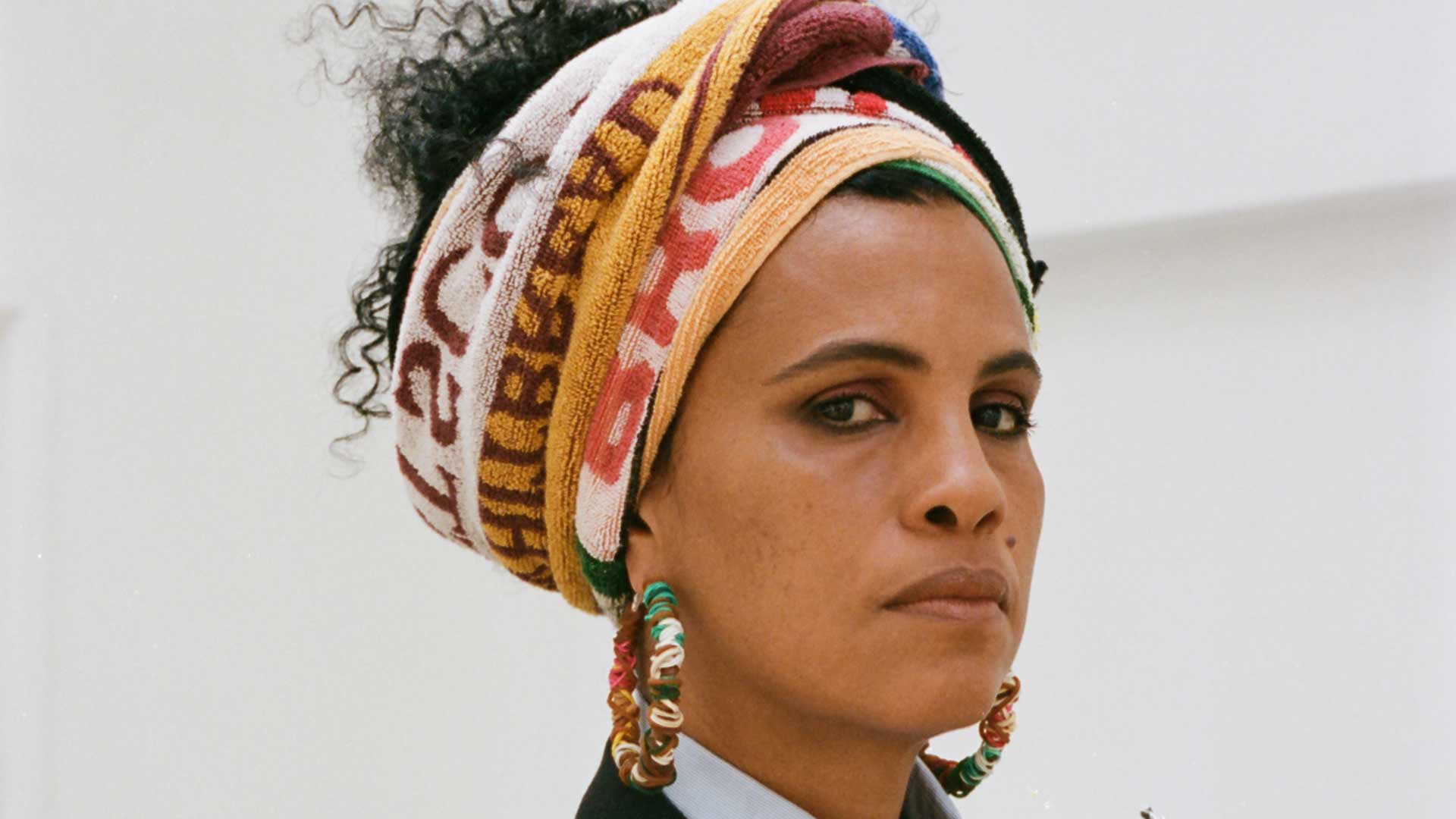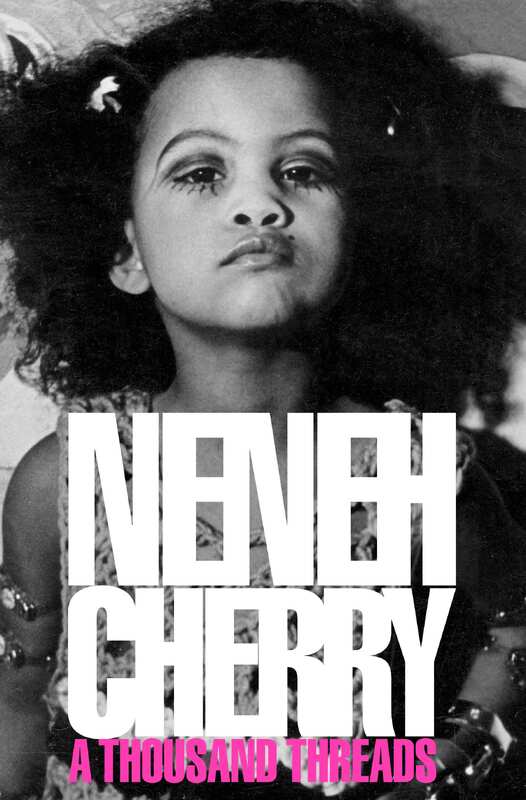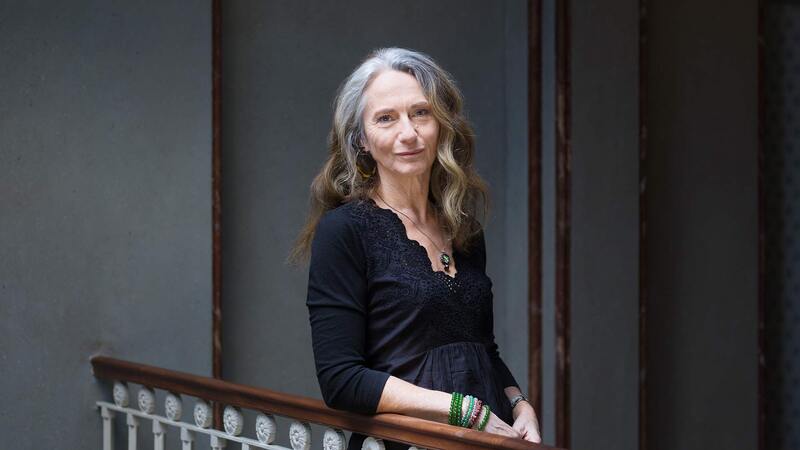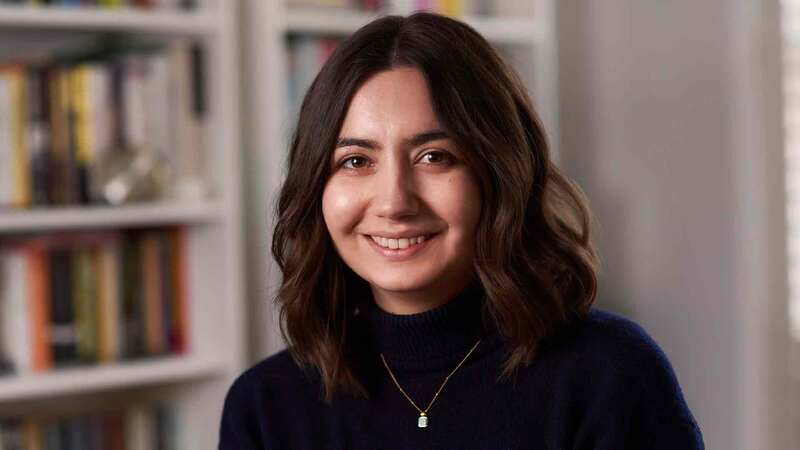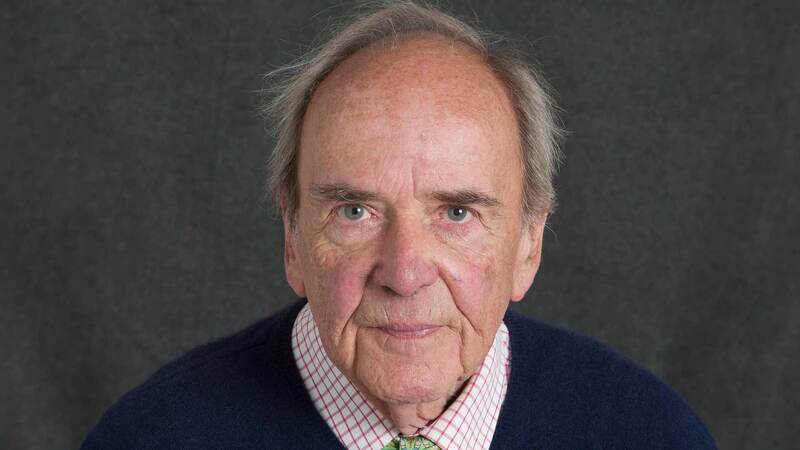You are viewing your 1 free article this month. Login to read more articles.
Singer-songwriter Neneh Cherry's new memoir explores her life in music, and the creative inheritance and legacy of her multi-heritage family
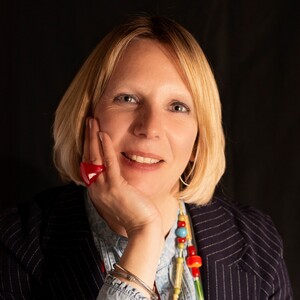
Caroline Sanderson is Associate Editor of The Bookseller, and since 2000, the magazine's non-fiction previewer. In 2022 she was Chair of ...more
Loss, addiction, family, racism grief and womanhood: Neneh Cherry’s A Thousand Threads transcends the author’s fame to reflect on bigger issues

Caroline Sanderson is Associate Editor of The Bookseller, and since 2000, the magazine's non-fiction previewer. In 2022 she was Chair of ...more
"Sometimes I felt like writing a really long song. Songs have always been storytelling devices for me. But with this book I felt an incredible responsibility, too. Because it’s not just about me, it’s also about all the other people who are part of how I got here and why I’m me.” Via video call from her home in north-west London, award-winning singer-songwriter, rapper and producer Neneh Cherry is talking about her memoir, A Thousand Threads. Including more than 100 photographs, many never published before, it tells the enthralling story of her life in music. It is that rare thing: a “celebrity” memoir that transcends the author’s fame to reflect on bigger issues—among them loss, addiction, family, racism, grief and womanhood. It is also a marvellous portrait of collaborative creativity as a generational life force. “I have become the person I am by growing up with people who lived by their philosophy of trying to make something good, new and beautiful for the benefit of many,” writes Cherry in her concluding chapter.
Born in Stockholm in 1964 to the sound of midday church bells, Neneh Cherry burst into the consciousness of many music fans with her seminal first appearance on the BBC’s “Top of the Pops” in 1988, when she performed her début single, “Buffalo Stance”, with incredible energy and attitude—and while obviously, gloriously, seven months pregnant. Yet, as A Thousand Threads charts, Cherry’s career in music began almost a decade earlier, in her teenage years during the punk era, when she found her voice singing with the likes of Poly Styrene from X-Ray Spex, and alongside Ari Up and Viv Albertine in The Slits. More than 40 years on, Cherry has released six critically acclaimed albums and collaborated with artists including Gorillaz, Cher, Michael Stipe and Yossou N’Dour with whom she wrote and recorded the global hit “7 Seconds”.
Life is f*cking hard, but also that I’m very blessed. I’m really proud of the family that I come from, and it’s so beautiful to have the relationships I have with the people that I’m closest to
Creativity was seemingly destined to be Cherry’s way of life, thanks to her remarkable upbringing. Her Swedish mother, Moki, a gifted interdisciplinary artist and designer, and Ahmadu, her engineer father from Sierra Leone, separated shortly after she was born. She soon acquired a stepfather who was to be hugely influential in her life: Don Cherry, a renowned jazz musician of African-American and Choctaw heritage. During her peripatetic childhood, the family moved between Sweden and New York, and later London. Cherry beautifully evokes the contrasting landscapes of her early life; from the bucolic countryside of southern Sweden to the glamour—and the squalor—of 1970s New York City. There are also walk-on parts for James Baldwin, Allen Ginsberg and John Coltrane.
Yet it is Cherry’s own multi-talented, multi-generational, multi-heritage family story which lies at the heart of A Thousand Threads. Anyone who loves a rock family tree will be in their element; among the many musical family members who feature are recording artists, Eagle-Eye Cherry—Neneh Cherry’s half-brother—and her youngest daughter Mabel. “I felt really consciously that I needed to convey the journey that I’ve made as a person, being from the family that I come from; the investment and vision that my parents had and the influence and how that all connects,” she tells me.
Written and collaboratively edited over four years, A Thousand Threads was signed to Fern Press immediately before the Covid-19 lockdown. Cherry retreated to the family house in Sweden, where she spent large parts of her childhood, to start writing. “Initially I think I was slightly allergic to the concept of writing it chronologically because I felt that was too obvious. But then I found myself following the artery that was the sequence of time. I’d open the door to one memory and that took me to the next one, and so on. I found it fascinating how much stuff we store in our memories, even as I’m coming to a time in my life where I feel like I can’t remember!”
Actually, it is the time of life at which Cherry has chosen to write her book that imbues it with much of its veracity and warmth. “I think I’m at a place in my life as a woman, as a mother, as a human being, where it feels natural and important to reflect on who and where I am. We women sacrifice so much for our families and friendships and our work because it means so much to us. I wanted to think about the privilege and the beauty of that, and the fact that even the hardships of life bring gifts. It wasn’t always an easy story to tell, but the book became a way of drawing together the threads that run through my ancestry and now through that of my children and grandchildren.”
Cherry tells me of her love of reading, especially during her teenage years, and her first encounters with authors like Maya Angelou and Isabel Allende, in whose works she felt herself reflected for the first time after a childhood where her skin colour had so often marked her out as “different”. “And now quite often I’ll go into a bookstore and pick up and buy books quite randomly and I find amazing gifts. I’ve such a respect for actual writers that I still feel like a bit of a crazy imposter.”
She needn’t worry about imposter syndrome, for Cherry is a born writer of prose as well as songs. I ask her if she discovered anything about her life through the process of recalling and writing about it. “That life is fucking hard, but also that I’m very blessed. I’m really proud of the family that I come from, and it’s so beautiful to have the relationships I have with the people that I’m closest to.”
She thinks for a moment. “So much of my life has become what it is because of where I come from, and because of who my parents were. I’ve found that quite profound,” she laughs. “How I wouldn’t be sitting here, where I am right now in north-west London, if I hadn’t been born in Stockholm on 10th March 1964.
Book Extract
I am standing in my kitchen. John Coltrane’s “A Love Supreme” is playing. I’ve been listening to these songs since before I can remember. The melodies are in my blood. The fight and language and the freedom of the music is in me. I let it soothe me, speak to me in a language I understand. A rebellion is happening in the sound. I feel it. I hear it. Change had to come. Have faith, soldiers. I had three parents—I guess that’s what we call a gift. Moki, Don, Ahmadu: givers of life. My parents were rebels, all three bound in a history so long and painful it hurts. I’ve always been a rebel. My children and grandchildren have it too. Those same creative channels I was brought up in have carried me all the way here. What they made is how they lived, how I’ve lived as a I forged my own life. The music tells me that here is now. Africa opens up under a sky shadowed by Swedish pine trees dressed in silks. Now, west London thrums on.





